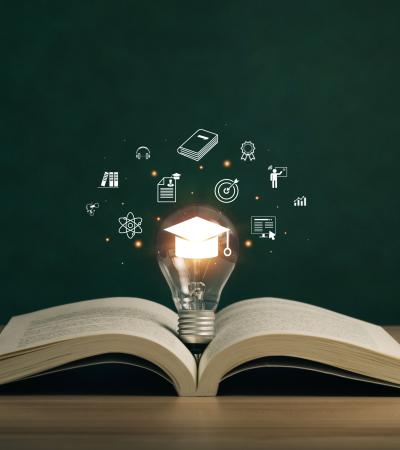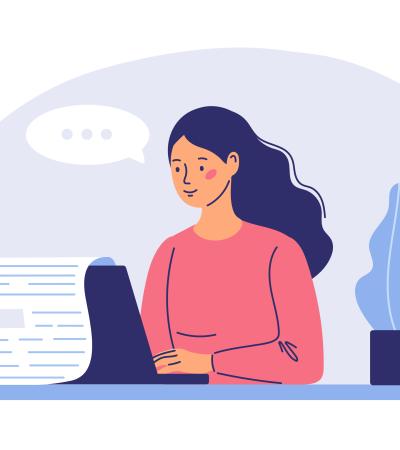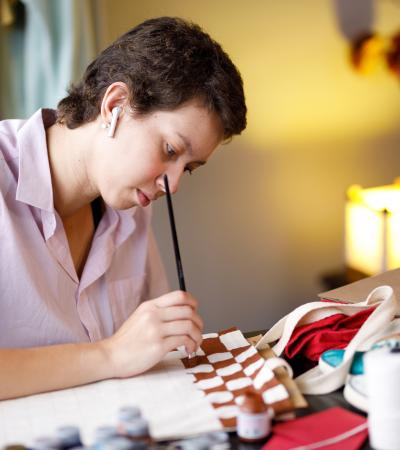Authors Speak is a new virtual program at Madison Public Library for older adults that features a book talk and four or five workshops taught by a local author.
For the first workshop, Heather Williams presented her book “Drawing as a Sacred Activity” and then taught a five-week drawing basics workshop.
Advanced Planning
The goal of this program was to reach older adults in Madison who wanted social, artistic programming that would allow them to safely socialize during the COVID-19 pandemic.
I worked with four other MPL librarians, the program coordinator from NewBridge Senior Center, and the older adult program manager from the Goodman Community Center. I reached out to NewBridge, who had originally wanted to have the program pre-pandemic, and then to other community engagement librarians in August.
We compiled a list of authors and ultimately selected Heather Williams to be our first author. She preferred a virtual teaching format so we coordinated to have rooms at our branches and GCC for older adults without home internet to watch a live stream.
Marketing
We met with a member of the library’s marketing department to discuss how to promote the program. We used a combination of flyers, a feature on the library website, and social media. We had 29 people register to attend online.
Budgeting
The bulk of the money for this program was spent on Heather’s honorarium. A small portion also went toward purchasing a small amount of paper, quality drawing pencils, erasers and pencil sharpeners that participants could pick up at each library and community center that hosted a hybrid viewing option. For this author, MPL paid the honorarium and Newbridge paid for the art supplies.
Day-of-event Activity
Prior to the event, each librarian signed up for a day to be the moderator. The librarian for that given day started the Zoom on MPL’s adult programs account 15 minutes early to greet Heather and make sure she could share her screen and her mic was working.
We followed the library’s guidelines on virtual events, which include the use of the waiting room feature and recording the total number of attendees. There were no unexpected challenges, but we did get questions afterward about recording the sessions for people who missed sessions.
Program Execution
The speaker used a PowerPoint presentation to discuss her background and give examples of different drawing techniques. She also incorporated music for the time attendees spent drawing. After the drawing section of the event, she asked everyone to hold their drawings up to their cameras. The in-person attendees at the Goodman Community Center took turns holding their drawings up to a webcam as well. Virtual attendees were able to compliment and applaud in-person attendees, and vice versa.
As for library staff in attendance, there was always one person who was the designated moderator, plus one or two other staff members who would stay for the whole session, or part of a session, depending on their schedule. In addition to library staff, the coordinators from GCC and Newbridge also stayed on each call to help in-person and virtual participants with technical difficulties or sharing their work. To ensure that everyone could share out at the end of the session, we called on each participant and asked if they would like to share, rather than relying solely on the hand-raise function or people calling out spontaneously. This seemed to work well.
The program was well attended, especially for the first four sessions (including the initial book talk). A little over 30 people, including library staff, attended the first two sessions, and the numbers fluctuated for the remaining sessions. Nineteen people attended the final session. In the future, we would reduce it to five weeks total.
Advice
I would advise peers interested in offering a similar program to discuss the possibility of recorded sessions during the initial planning stages and keep their initial run of this program to four or five weeks. If your target population will also be older adults, coordinate with local senior centers or senior services to ensure that they can participate. We planned our event to begin after Senior Lunch Programs ended.
Funding for this article has been provided by the National Endowment for the Humanities (NEH) as part of the American Rescue Plan: Humanities Organization Grant.



